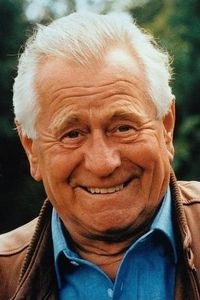Next person biography:
Heinz Sielmann was born in East Prussia and grew up in Königsberg. He developed an interest in the animal world at a young age and began making scientific observations at the Zoological Institute in Königsberg at the age of 18. He studied biology at the University of Königsberg and continued to pursue his passion for animal observation, capturing his findings on film.
Sielmann's film debut was in 1938 with the sound film "Birds over Haff and Meadows". During World War II, he was exempted from military service for his ornithological research and worked on the island of Crete, which was occupied by the German Wehrmacht.
After the war, Sielmann joined the Institute for Film and Image in Science and Teaching, where he worked as a director and cameraman until 1958. He produced film material for school lessons and was known for his sophisticated technology, which attracted attention in his documentary "The Carpenters of the Forest" in 1954.
Sielmann co-founded the World Wildlife Fund (WWF) and worked with the BBC on a television series, which featured his films. He also produced a feature film in the Congo in 1957, "Ruler of the Jungle", which won a prize at the Moscow Film Festival.
In 1960, Sielmann became self-employed and continued to produce films for German television and school lessons. He achieved great fame and popularity through his TV series "Expeditions into the Animal Kingdom", which he produced for over 170 episodes until 1991.
Sielmann became increasingly involved in ecological issues in the 1980s, drawing attention to threatened natural and landscape areas in the Federal Republic. He suggested converting the former "death strip" on the inner-German border into a national park, which sparked controversy.
In the 1990s, Sielmann opened a new broadcast project on RTLplus with "Sielmann 2000 - Return to the Future", which was discontinued due to financial reasons. He then produced the series "The Heinz-Sielmann-Report" on Sat.1 and "Sielmann's Nature Adventure" for the same broadcaster.
Sielmann set up a nature conservation foundation named after him in 1994, which acquired a natural area in Brandenburg in 2002 as a habitat for endangered animal species. He published his autobiography, "My Life", in 1995.
Throughout his career, Sielmann received numerous awards for his film work, including five federal film awards. He was awarded the Federal Cross of Merit First Class in 1987 and the Grand Cross of Merit of the Federal Republic of Germany in 1993. Sielmann has been an honorary professor at the University of Munich since 1994 and has received several other awards and honors.


















